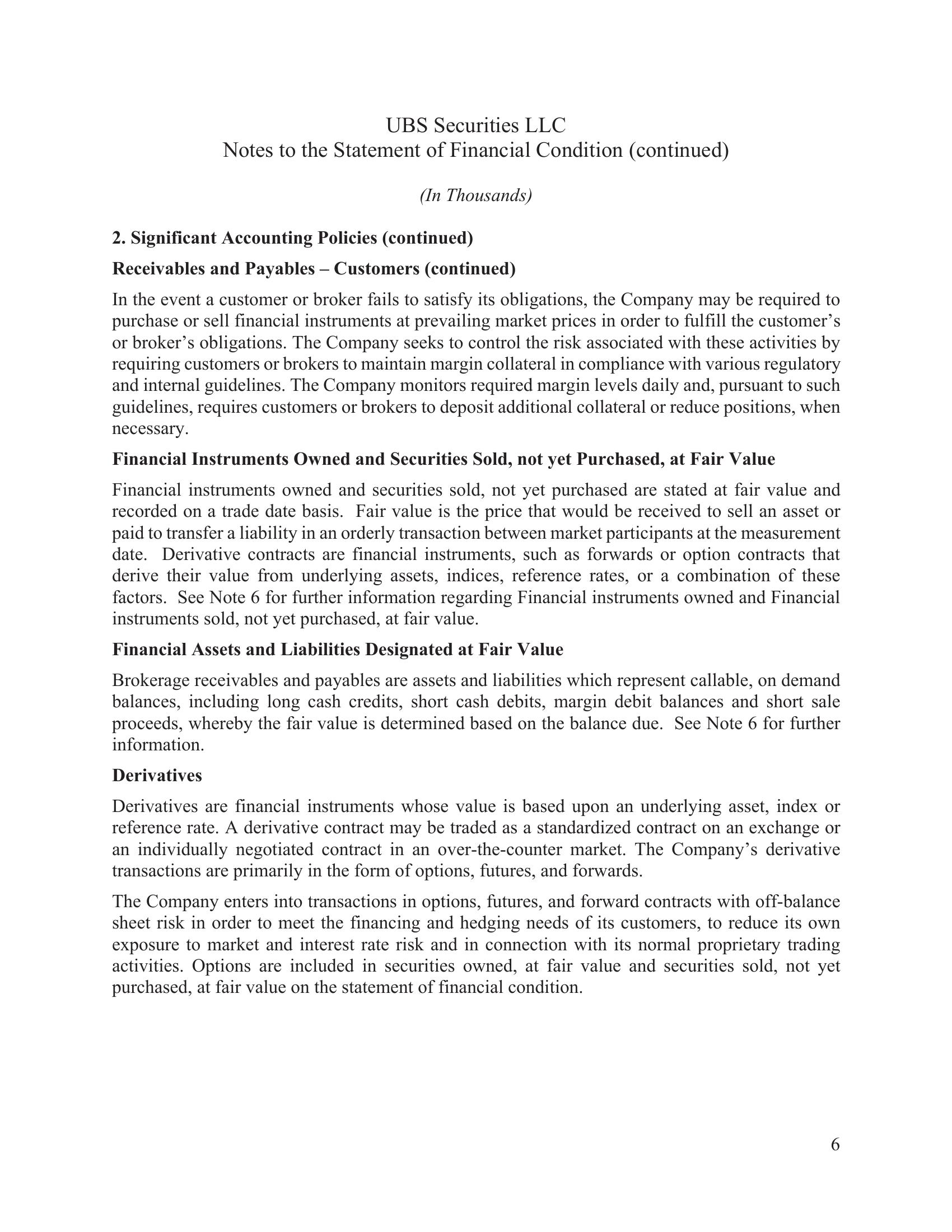Statement of Financial Condition
UBS Securities LLC
Notes to the Statement of Financial Condition (continued)
(In Thousands)
2. Significant Accounting Policies (continued)
Receivables and Payables - Customers (continued)
In the event a customer or broker fails to satisfy its obligations, the Company may be required to
purchase or sell financial instruments at prevailing market prices in order to fulfill the customer's
or broker's obligations. The Company seeks to control the risk associated with these activities by
requiring customers or brokers to maintain margin collateral in compliance with various regulatory
and internal guidelines. The Company monitors required margin levels daily and, pursuant to such
guidelines, requires customers or brokers to deposit additional collateral or reduce positions, when
necessary.
Financial Instruments Owned and Securities Sold, not yet Purchased, at Fair Value
Financial instruments owned and securities sold, not yet purchased are stated at fair value and
recorded on a trade date basis. Fair value is the price that would be received to sell an asset or
paid to transfer a liability in an orderly transaction between market participants at the measurement
date. Derivative contracts are financial instruments, such as forwards or option contracts that
derive their value from underlying assets, indices, reference rates, or a combination of these
factors. See Note 6 for further information regarding Financial instruments owned and Financial
instruments sold, not yet purchased, at fair value.
Financial Assets and Liabilities Designated at Fair Value
Brokerage receivables and payables are assets and liabilities which represent callable, on demand
balances, including long cash credits, short cash debits, margin debit balances and short sale
proceeds, whereby the fair value is determined based on the balance due. See Note 6 for further
information.
Derivatives
Derivatives are financial instruments whose value is based upon an underlying asset, index or
reference rate. A derivative contract may be traded as a standardized contract on an exchange or
an individually negotiated contract in an over-the-counter market. The Company's derivative
transactions are primarily in the form of options, futures, and forwards.
The Company enters into transactions in options, futures, and forward contracts with off-balance
sheet risk in order to meet the financing and hedging needs of its customers, to reduce its own
exposure to market and interest rate risk and in connection with its normal proprietary trading
activities. Options are included in securities owned, at fair value and securities sold, not yet
purchased, at fair value on the statement of financial condition.
6View entire presentation